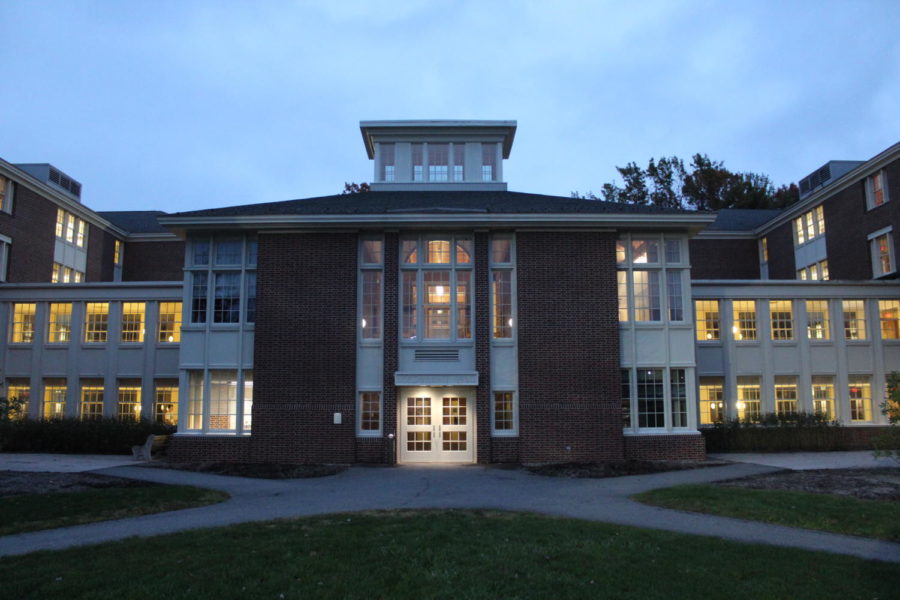Housing applications and on-campus parking feeling pressure of growing class sizes
October 28, 2022
Bucknell has overenrolled students for both the classes of 2025 and 2026, contributing to an overcrowding of the housing application process and on-campus parking spaces.
The target class size of 1,010 was exceeded by about 25 students both years.
Since not all students who are admitted end up enrolling to the University, the Office of Admissions normally admits more students than the target enrollment. The office uses the data from the past three years to determine how many students to enroll.
“What has changed recently is that more students are saying yes to our offers than we anticipated,” Kevin Mathes, Assistant Vice President and Dean of Admissions, said.
The number of students admitted to the class of 2026 was lower than the year prior, but enrollment was still higher. Overall the number of students admitted has increased over the past four years.
About 3,300 students were admitted in the Class of 2023, which is almost 500 fewer students than for the class of 2026. Even with the increase in enrollment, the University does not plan on lowering the target class and is still hoping for 1,010 new students next fall. This increase in students has many implications on campus, specifically for student life.
Housing is nearing capacity
If the target class size were to remain the same for the following years, that would bring enrollment to be approximately 4,000 students. As of right now, there are approximately 3,200 available beds on campus for students.
Approximately 300 students live off campus during the academic year, roughly 100 typically go abroad in the fall and 250 in the spring. That means that there would be approximately 250 students that would not have beds, if the target stayed the same. This also means there is less flexibility for room changes.
“When housing is at capacity, less emergency space is available,” Ashley Hubler, Associate Director of Housing Services, said. “Housing works to accommodate student needs on a case-by-case basis.”
As of right now, the University is planning on demolishing the Mods and building apartments which will add eight more beds, but doesn’t have any other future plans for new housing.
A number of students are upset about the overcrowding and hope Bucknell will resolve the issue before it gets worse.
“I was the first day of housing selections for Juniors and there were less than limited options for housing,” Eliza Greenberg ’24 said.
Morgan Hudy ’25 shared a similar opinion.
“I had a later time slot for housing selection, but ended up on the waitlist for housing until August,” Hudy said.
Jack Renaghan ’24, a resident of Larison Hall, said he was left with very few options when it came time for him to select a room.
“I’m very disappointed with where I live this year,” Renaghan said. “The location is not what I wanted and I was one of the lucky ones who actually got housing.”
Parking is boiling over
Another hot topic on campus that is affected by over-enrollment is parking. On campus, there are about 800 parking spots dedicated solely to students, and more than 700 parking spots that are designated for any parking pass.
This semester, about 1,400 parking passes were given, which is just over half of students eligible for parking. If half of eligible students continue to apply and receive parking passes and the enrollment rate continues to stay at 1,010, the number of parking passes will increase to around 1,500 passes. With many students already complaining about an increase in parking passes given out, some are worried that expanding classes could worsen the situation.
“There should be no reason on a Wednesday evening I can find nowhere to park, especially when I live downhill near freshmen. The freshmen bringing their illegal cars is ridiculous,” Kaitlyn Carduff ’25 said.
“As a commuter student, I may potentially be late to class because there is nowhere to park,” Hannah Sims ’25 said.
While an increase in students is good for the growth and economic health of the University, it has a great effect on student life.






















